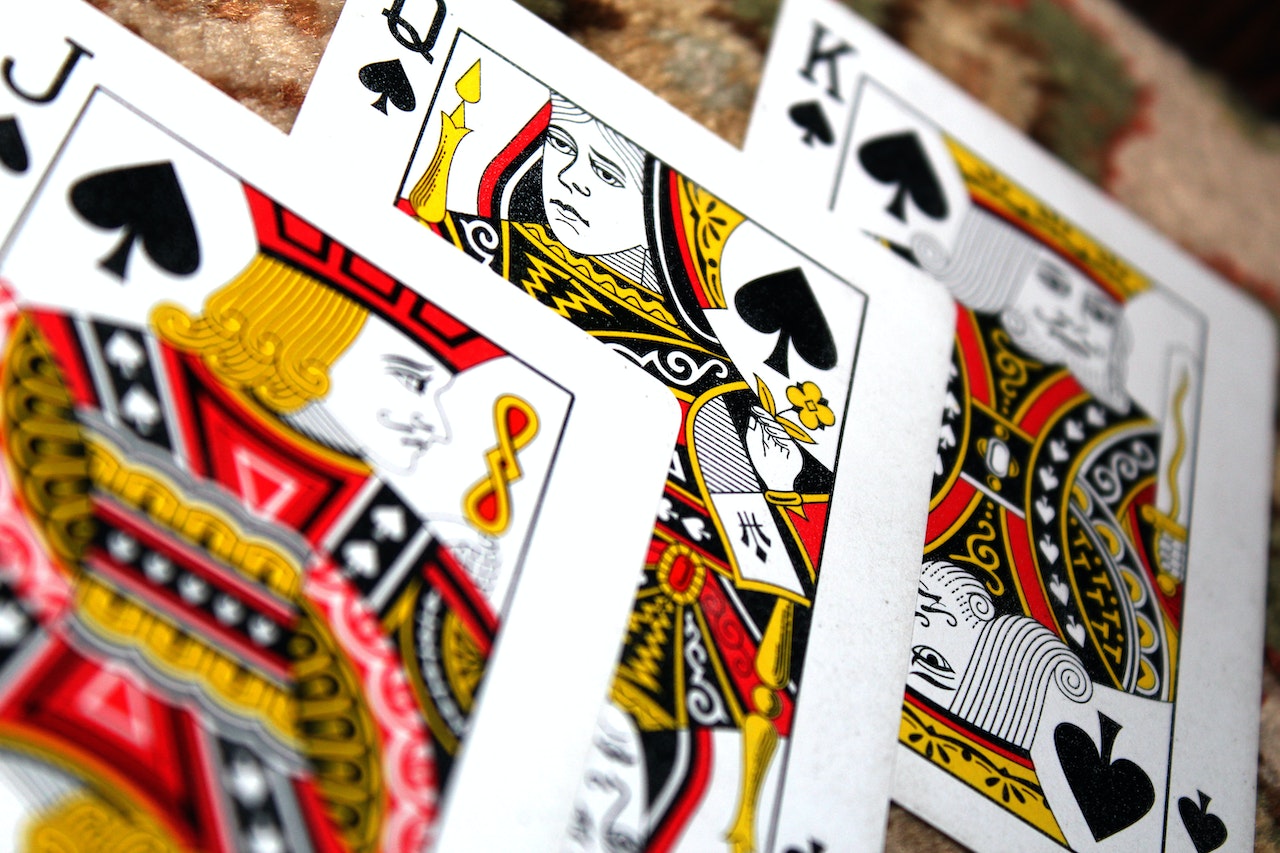Poker Etiquette: Essential Do’s and Don’ts at the Poker Table

1. Introduction: The Importance of Poker Etiquette
Poker is not just a game of skill and strategy; it is also a game that demands a certain level of etiquette and respect. Proper poker etiquette ensures a smooth and enjoyable experience for all players at the table. From how you handle chips and cards to how you interact with fellow players, understanding and practicing poker etiquette is essential. This article will delve into the dos and don’ts of poker etiquette, guiding you through the proper behavior, communication, and conduct expected at the poker table. By adhering to these guidelines, you can elevate your poker game and foster a positive and respectful playing environment.
1. Introduction: The Importance of Poker Etiquette
Understanding the Role of Etiquette in Poker
Picture this: you’re sitting at a poker table, surrounded by fellow players, all eyeing the pot with a mix of determination and anxiety. In this intense environment, a little thing called etiquette can make a big difference. Poker etiquette, much like a good poker face, is a crucial skill to master if you want to enjoy the game and earn the respect of your fellow players.
Etiquette in poker encompasses a wide range of behaviors and actions that demonstrate respect for the game and for other players. It’s not just about knowing the rules; it’s about how you carry yourself at the table. By following some simple dos and don’ts, you can ensure a harmonious and enjoyable poker experience for everyone involved.
2. Respectful Behavior: Dos and Don’ts at the Poker Table
Showing Respect towards Fellow Players
Avoiding Disruptive Behavior
Whether you’re a seasoned pro or a newbie, treating your fellow players with respect should always be a top priority. Remember, poker is a game of skill and strategy, and we’re all here to have a good time. Here are a few dos and don’ts to keep in mind:
Do:
– Always be polite and courteous to other players, regardless of the outcome of a hand.
– Keep your emotions in check and avoid taking frustrations out on others.
– Congratulate opponents on well-played hands, even if you were unlucky enough to lose.
Don’t:
– Engage in trash talk or attempt to tilt other players.
– Gloat excessively or belittle opponents when you win a big hand.
– Show poor sportsmanship by berating or criticizing other players.
Remember, poker is a game of strategy, not personal attacks. Treat others the way you’d like to be treated, and you’ll contribute to a positive and enjoyable poker environment.
3. Handling Chips and Cards: Proper Etiquette for Dealing with Game Materials
Proper Chip Handling Techniques
Dealing with Cards in a Respectful Manner
When it comes to handling the physical components of the game, proper etiquette is essential. After all, we don’t want any flying chips or accidentally exposed cards giving away our strategic secrets. Here’s what you need to know:
Proper Chip Handling Techniques:
– Stack your chips neatly in front of you to make it easier for others to count.
– Avoid splashing the pot by tossing chips carelessly into the center.
– Refrain from excessive chip shuffling or chip tricks that could distract or annoy other players.
Dealing with Cards in a Respectful Manner:
– Keep your cards on the table and avoid exposing them to unnecessary scrutiny.
– Hold your cards securely, so they can’t be seen by others.
– When folding, place your cards face-down and push them towards the dealer to avoid confusion.
By respecting the physical aspects of the game, you contribute to a smoother and more professional poker experience for everyone involved.
4. Interactions with Players: Social Etiquette and Communication Guidelines
Engaging in Friendly Conversation
Avoiding Offensive Language and Behavior
Poker isn’t just about the cards; it’s also about the social aspect and interactions with your fellow players. Maintaining proper social etiquette can make the game more enjoyable for everyone. Here are a few guidelines to keep in mind:
Engaging in Friendly Conversation:
– Feel free to engage in casual conversation, but be mindful of the game and avoid distracting players during critical moments.
– Respect others’ privacy and personal space; not everyone wants to engage in lengthy discussions or hear your life story.
Avoiding Offensive Language and Behavior:
– Watch your language and avoid using offensive or derogatory terms.
– Refrain from making personal attacks or insulting remarks towards other players.
– Remember that jokes and humor may not always land well, so be mindful of others’ boundaries.
In the end, poker is meant to be a fun and social activity. By adhering to proper social etiquette, you can foster a friendly and inclusive atmosphere for all players at the table.
Now that you’ve learned the essential dos and don’ts of poker etiquette, get out there and put your skills to the test. Remember, the goal is not only to win the game but also to enjoy the journey and the company of your fellow players. Good luck and may the best hand win!
5. Betting and Raises: Etiquette for Placing Bets and Raising Stakes
Announcing Bets Clearly
No one likes to play a guessing game at the poker table, especially when it comes to betting. So, when it’s your turn to make a wager, be sure to announce your bet clearly. Don’t mumble, don’t muffle your words, and for the love of all things poker, don’t whisper it to your neighbor in hopes that they’ll pass it on. Speak up, people! Let everyone know how much you’re putting into the pot so there’s no confusion or arguments later on.
Respecting Betting Limits and Raises
If there’s one cardinal rule of poker, it’s that you need to respect the betting limits and raises. Don’t be that player who tries to sneak in an extra chip or two when it’s not your turn to raise. It’s like trying to slide an extra slice of pizza onto your plate when no one’s looking – everyone knows what you’re up to. Stick to the rules, and if you want to raise, do it boldly and within the designated limits. Your opponents will appreciate it, and you’ll avoid any unnecessary tension or disputes.
6. Managing Disputes: Resolving Conflicts in a Respectful Manner
Dealing with Rule Disputes
Let’s face it, disputes happen. Someone misreads their hand, someone forgets the betting sequence, or someone accidentally shows their cards too early. When these situations arise, it’s crucial to handle them with grace and respect. Don’t turn into a poker-playing Hulk, smashing the table and shouting “Hulk smash!” Instead, calmly discuss the issue, call a floor manager if needed, and let the rules be the ultimate decision-maker. Remember, it’s just a game, and getting into unnecessary arguments won’t do you any favors in the long run.
Resolving Conflict with Calmness and Respect
Conflict at the poker table can give rise to tension and animosity, but it doesn’t have to escalate into a full-blown showdown. Keep your cool, even when faced with a player who seems determined to push your buttons. Responding with calmness and respect not only shows maturity, but it also keeps the game enjoyable for everyone involved. Remember, you’re here to have fun and test your poker skills, not engage in a verbal boxing match. So, take a deep breath, count to ten if necessary, and remind yourself that there’s always another hand to play.
7. Table Etiquette: Maintaining a Clean and Organized Playing Environment
Keeping the Poker Table Tidy
Just because you’re playing poker doesn’t mean you should embrace the chaos and turn the table into a pigsty. Keep your chips neatly stacked, your cards in order, and your drink within arm’s reach but far from potential spillage disasters. By maintaining a tidy playing environment, you’ll not only impress your fellow players with your organization skills but also avoid any unnecessary distractions or mishaps.
Avoiding Excessive Delays
Life happens, and sometimes you need a moment to collect your thoughts or deal with an incoming phone call that you swear you’ll let go to voicemail. However, when you’re at the poker table, it’s essential to keep delays to a minimum. Think of it as a balancing act – you want enough time to strategize and make calculated decisions, but you also don’t want to slow down the game to a crawl. Be mindful of the speed of play, and try not to be the player who stretches a 30-second decision into a five-minute saga. Your fellow players will appreciate it, and the game will keep its lively rhythm.
8. Online Poker Etiquette: Guidelines for Proper Online Poker Conduct
Respecting Online Platform Rules and Regulations
In the world of online poker, it’s important to remember that you’re playing on someone else’s turf. Each poker platform has its specific rules and regulations to ensure fair play and a positive experience for all. So, take the time to read and understand these guidelines. Don’t be the player who unknowingly breaks the rules and gets a virtual slap on the wrist from the moderators. Show some respect for the platform, follow the rules, and enjoy your online poker adventures hassle-free.
Maintaining Sportsmanship in Online Interactions
Ah, the wonders of online interactions – the perfect breeding ground for trolls, keyboard warriors, and sore losers. But not you. You’re a shining example of digital sportsmanship. Remember that there are real people behind those avatars, and treat them with the same respect you would at a physical poker table. Avoid name-calling, gloating, or engaging in any behavior that would make your grandmother shake her head in disappointment. Maintain a friendly and positive atmosphere, and you’ll not only have a more enjoyable time playing online poker but also foster a community that others will be eager to join.In conclusion, poker etiquette is an integral part of the game that should never be overlooked. By following the essential dos and don’ts outlined in this article, you can enhance your playing experience and contribute to a harmonious atmosphere at the poker table. Remember to treat your fellow players with respect, handle game materials appropriately, and communicate effectively. Whether you’re playing in a physical casino or online, practicing good etiquette reflects your character as a poker player and ensures the enjoyment of all participants. So, embrace the principles of poker etiquette and let your conduct at the table demonstrate your true love for the game.
FAQ
1. Why is poker etiquette important?
Good poker etiquette is important because it creates a positive and respectful environment at the table. It helps maintain fairness, minimizes conflicts, and ensures an enjoyable experience for all players involved. Additionally, observing proper etiquette enhances your reputation as a player and can lead to better social interactions and opportunities in the poker community.
2. What are some common examples of poker etiquette?
Examples of common poker etiquette include treating fellow players with respect, avoiding disruptive behavior, handling chips and cards properly, announcing bets clearly, and resolving conflicts calmly. It also involves maintaining a clean and organized playing environment, following betting limits and raises, and adhering to online poker platform rules and regulations.
3. Can bad etiquette negatively impact my poker game?
Yes, bad etiquette can have negative consequences on your poker game. Displaying poor etiquette, such as being rude or disrespectful, can alienate fellow players and make them less likely to engage in friendly interactions or cooperate during gameplay. It could also lead to disputes, distractions, or even being asked to leave the table, which can disrupt your focus and concentration.
4. Is poker etiquette different for online poker?
While the core principles of poker etiquette remain the same for online poker, there are some specific guidelines to follow. These include respecting online platform rules, refraining from abusive language or behavior in chat features, and being mindful of timing and speed of play. It is important to maintain sportsmanship and treat other online players with the same respect as you would in a physical casino setting.

Looking to promote your sports betting and casino services effectively? AdHang offers Gambling SEO and specialized marketing services tailored to reach and engage your target audience. With a focus on strategic messaging and wide-reaching digital marketing tactics, AdHang can help elevate your brand and drive results in the competitive online gambling industry. Click here to discover how AdHang’s expertise can take your sports betting and casino marketing to the next level.









